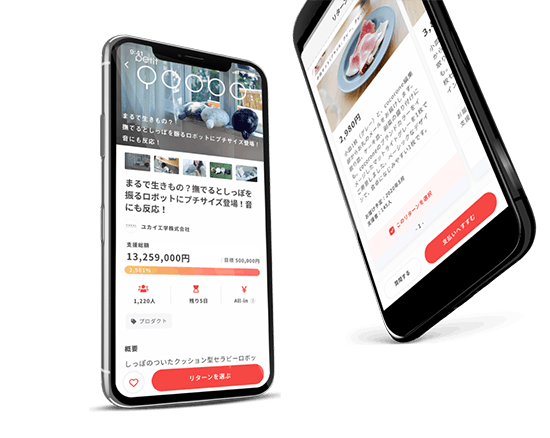Did you know that Japan is the only country in the world where a single spousal surname is mandatory? This means that when a Japanese couple wants to get married, one spouse has to change his or her last name to the other person’s last name. (Creating a new name is not an option.) This law violates an universally recognized basic human right to keep one’s name.Moreover, even though couples may choose to use either spouse's name, women are often expected to change their last names. In fact, women have changed their names in 96% of the marriages in Japan. The United Nations has pointed to this situation as gender discrimination and has advised Japan three times to allow couples to use different surnames.The spouses who change their last names have to spend their time and and resources to change their names on driver’s licenses, passports, bank accounts, and many other personal documents. While many accept the name change, some people experience a deep feeling of identity loss due to their unwanted name change.We have started a grassroots movement lobbying local and national governments across Japan to change the current law to allow couples to choose whether they want to change a spouse’s surname to have the same last name or to keep both last names. With this crowdfunding campaign, we aim to increase awareness, funds, and supporters and to accelerate our efforts. We need your support!Public OpinionSurvey shows that 69% of the public approves changing the law to allow married couples to have different last names. Demand is growing as women play a greater role in the workplace and more couples share the housework and childcare together.Currently, all political parties except the ruling Liberal Democratic Party have publicly expressed that they are in favor of reforming Japan’s marriage law to add the option to get married without changing anyone’s last name.Some of the opposing opinions argue that separate surnames may significantly weaken family ties. Supporters of the law reform answer that the negative impact on family ties is questionable since family is more than a name, the rest of the countries around the world allow families to have different last names, and about one third of couples in Japan nowadays get a divorce anyway despite having the same family names.De Facto Marriage?Couples who do not want to change their last names often opt for a de facto marriage or a common law marriage, which allows them to register that they live together as spouses to the local authority . However, de facto marriages are not considered official or legal, and various privileges and protections given to legal marriages are not provided to de facto marriages. For example, a spouse cannot receive inheritance unless a will was written by the deceased spouse before death. Moreover, couples cannot receive inheritance tax exemptions or income tax spousal deductions given to couples in legal marriage. When one person has to move to and work abroad, the spouse cannot get a VISA to live abroad together.Services also may have restrictions for couples in de facto marriages. For example, often, banks do not offer joint accounts or home loans to couples in de facto marriage. There are nursing homes that do not allow a couple to live in the same room unless they are under legal marriage. Moreover, there are various services that do not give family discounts unless a couple is in legal marriage.In some cases, couples in de facto marriages hesitate to have children because they’re worried about parental rights and legal protections. If a couple under de facto marriage has a child, only one parent can have parental rights or custody to the child. The parental right is automatically given to the mother unless the couples take steps to register the father. Moreover, there are many cases in which couples in de facto marriage cannot get the same amount of government subsidy for infertility treatment. And most of the time, couples in de facto marriage do not qualify to adopt a child. Some say that allowing couples to get married with different last names might increase the birth rate in Japan. Our VoicesThere are many different reasons why couples might want to get married without changing anyone’s name. Please watch the video that features some of us who are looking forward to the law reform. Below are some of our voices.“My partner is a researcher and has many academic papers and patent rights under her name. If she changes her name, I’m afraid her career would be interrupted. On the other hand, I have a very unique last name, and I would not like to change my last name. Thus, we have decided to stay together without getting legally married."“I got married in my 40s and continued to use my maiden name for work for more than a decade. Now that I stopped working and people around me call me by my husband’s last name, I feel so uncomfortable, as if my true identity has disappeared. I thought I would get used to it, but I couldn’t.” “When I was little, my parents got divorced and I had to change my last name. After almost 20 years, I met the love of my life, and coincidentally he has my previous last name. I have very bad memories with that last name, so I do not wish to change my name back to that name. My partner agreed to change his last name, but his parents refused because they do not think a man should change his name. Thus, we have not been able to get married.”“My partner and I are both doctors. We both have accomplished a lot in our careers, and each of us would like to open our own businesses in the future. We would like to continue living with the names we have built our careers on.”“I got married at a young age. I did not want to change my last name, but my families and everyone around said I need to change my name because I am female. After I got divorced, I decided to keep that last name, because I had advanced my career with that name for over a decade. Years later, I met someone new. Neither my children nor I wanted to change our names, and I did not want my new husband to take my ex-husband’s last name either. Therefore, we decided to opt for a de facto marriage. However, when he had to undergo a serious surgery, the hospital did not allow me to sign his papers unless we were under legal marriage. Thus, I had no choice but to get legally married and change my name again. There were so many paperworks to go through, and my legal identity changed once again. I feel devastated.”“I’m legally married and still use my maiden name for work. I often go abroad for business or to speak at conferences. Each time, I have to explain to the hosts that my legal name is different from my work name. Once, the hotel reservation was made with my work name, and the hotel almost refused to let me stay there because the name used for the reservation did not match my passport name. In another occasion, the immigration officer did not believe that I was there to speak at a conference because my business name on the conference website did not match my passport name. It’s really stressful to juggle two names sometimes.”“My partner and I would like to get pregnant and are going through infertility treatment. We cannot receive the same subsidy that a legally married couple would get for their infertility treatment. It’s very sad and stressful.”“When your name changes, people around basically find out that you probably got married or divorced. I think it’s unfair that only person gets affected. Especially for divorce, you’re going through a hard time already, and then you have to unwantedly disclose your marital status change and go through all the documentation changes? That’s very stressful. Not everyone wants to make their marriage or divorce news public.”“I’m in a de facto marriage and gave birth last year. Although both my husband and I took a parental leave for one year and take care of our baby together, he does not have parental rights. In Japan, only one person is allowed to have parental rights in a de facto marriage, and the rights are automatically given to the mother. I would like to share joint parental rights with my partner.”“My husband and I have been OK with de facto marriage so far, but now that we both have retired and are getting older, we’re worried we might need more medical and family support from the government that might be limited to couples in legal marriage.”Photo: Members talking at a Study Session for National Diet Members on February 14, 2020 (Photo by Shuzo Sato)Benefits of the Law ReformChanging the law would give couples the freedom to choose whether they would like to change a spouse’s name or to keep both names. This would reduce unwanted name change paperwork for many and eliminate unwanted identity losses. It would also allow men and women to have the same chance to keep their names and to continue using their legal names to develop their careers. It would allow many couples who are currently in de facto marriages to have legal marriages. With legal protection of legal marriages, more couples will feel safer to have children or to face their retirement years. We strongly hope that more diverse forms of families will become accepted in Japan.About Us The Selective Separate Spousal Surname National Petition Action in Japan was founded in November 2018 by Secretary-General Naho Ida. The group is talking with local and national governments to have the marriage law reformed. We have more than 170 members across Japan. Our main activities are:1. Petitioning to local councilsWe hold study sessions and conversations with different local councillors throughout Japan and work together to petition the National Diet. Between November 2018 and December 2019, our organization contributed to the submission of 37 proposals. In total throughout the decades, there have been 85 marriage reform petitions submitted to the National Diet. We hope to reach all 47 prefectures across Japan this year.2. Petitioning to the Japanese National Diet We lobby and hold parliamentary study sessions for different political parties and lawmakers involved in the legislation. 3. Public Awareness BuildingWe hold various lectures, respond to media interviews and surveys, write for newspapers and research organizations, and disseminate information on the web ( website / Twitter / Facebook / Note ) to raise public awareness and drive the discussion around Japan.4. Community BuildingWe have built a community for those who are asking for this law reform. We collaborate together to petition and also also support each other with concerns members might be facing in regards to their marriages and surnames.We Need Your Help!Please help us raise international awareness and urge the Japanese government to reform the marriage law. Below are some specific actions you can take.Share this page and what is happening in Japan in your SNS accounts with hashtags #MarriageRightsInJapan and #選択的夫婦別姓Donate to the crowdfunding campaign #MarriageRightsInJapan (Feb 14 - Apr 17)Send us supporting comments to be posted on our website.Introduce us to others who can support us.Follow us on our website / Twitter / Facebook / Note and share our posts.Contact InformationPlease do not hesitate to email us to ask questions, send us supporting comments, interview us, invite us to talk on stage, etc.The Selective Separate Spousal Surname National Petition ActionEmail: chinjyoaction@gmail.comReferencesHere are some articles written in English that you can refer to to find out more.“Asahi poll: 69% back separate surnames for married couples”. The Asahi Shimbun. 28 Jan 2020"Women in Japan Fight for Their Identity — Starting With Their Name". Bloomberg. 22 July 2019"Name recognition: Separate surnames for spouses gains traction in Japanese society". Mainichi Japan. 4 Dec 2019.“Japan’s Enforcing of Same Surnames for Couples Has Only a Short History”. Nippon.com. 24 Sep 2019“Women Should Not Be Forced to Take Husbands' Last Names, Says UN Official”. Nikkei Asian Review. 26 Mar. 2016.












